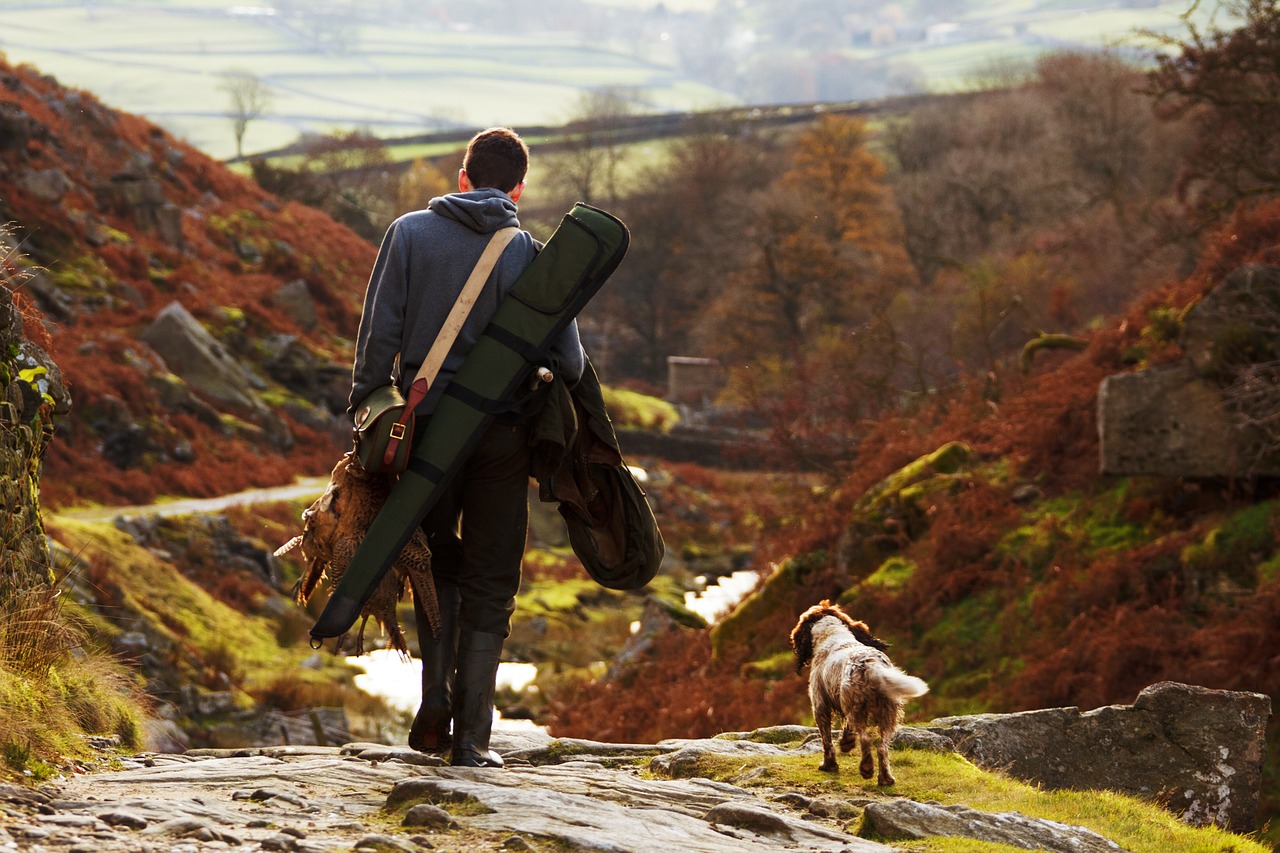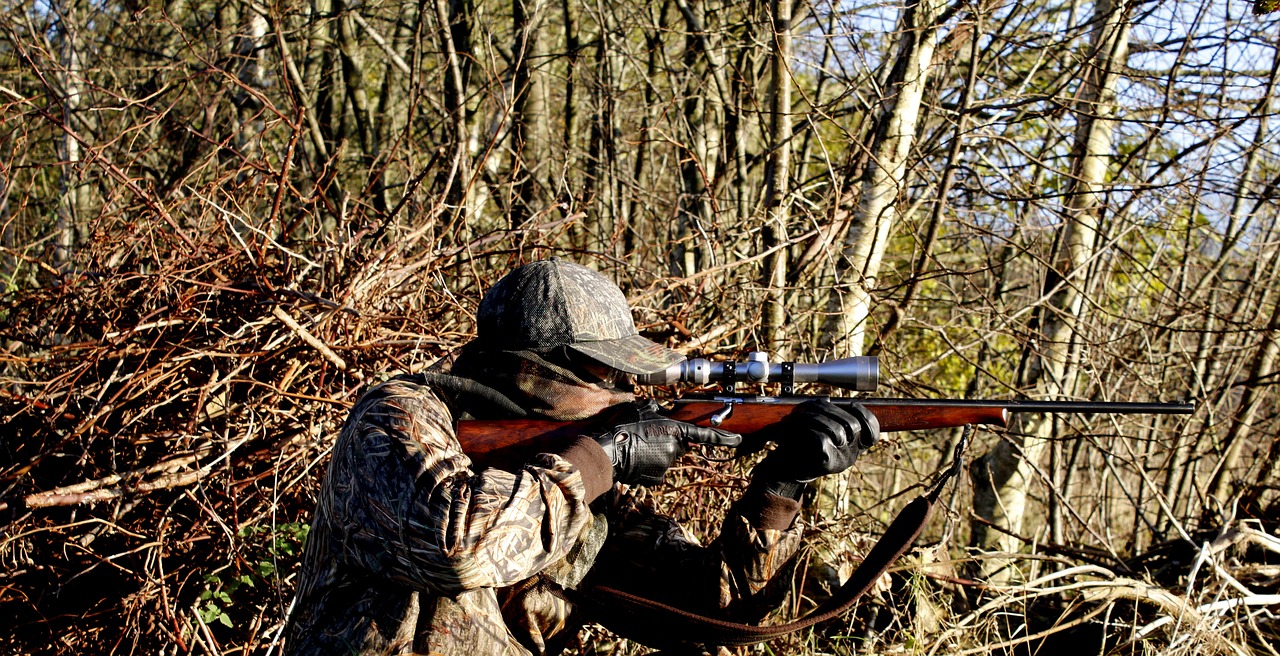Can Hunting Be a Job?
Sep 17th 2021
Can Hunting Be a Job?
Can You Make Hunting a job? Is there anything you need to do to be able to land a hunting career?
Hunting is probably one of the most primitive ways of feeding humanity and if our ancestors survived by doing it, so can you!
Are you satisfied with merely thinking about hunting? Do you get excited when you prepare your hunting gear with a durable, versatile, portable case and plan for a thrilling, fun-filled hunting weekend? Do you imagine yourself going back home with a truck full of trophies? When you live for the hunt, then hunting may be the job (career) for you!
Before digging any further on how hunting can be a job, let’s explore first how it can help local economies in the United States. The funding for US state conservation programs, for example, depends mostly on hunting sales activities; such as hunting and fishing licenses and other related fees. Accordingly in 2015 there were about 35 million hunting licenses, tags, permits, and stamps sold in the United States totaling approximately $821 million. A large part of this fund goes to conservation programs. Moreover, American hunters have totaled more than $400 million in annual contribution to wildlife conservation through membership dues and donations. Needless to say, the billions of dollars generated from this activity provides jobs to so many people across the states.

hunting, by PublicDomainPictures licensed under Pixabay
It goes to say that hunting is not just a past-time activity, but a worthwhile outdoor recreation activity which contributes to the domestic economies of different states. If you are thinking of taking part in contributing to your local economies whilst having fun and getting to hone in on your skills, hunting is indeed a career you should consider.
Let us explore these different types of hunting and see which of these fit you:
- Camouflage Hunting: This is an exciting activity which allows you to hide or blend with your environment undetected while stalking your prey. Be sure to choose hunting essentials that blend well in the environment you are in.
- Dog Handlers: This is a hunting activity with a trained dog as your companion. This requires a lot of training, especially in order to have your dogs respond to your hunting instructions, such as retrieving game after hitting your target.
- Bird Hunting: Otherwise known as upland hunting. This type of hunting allows you to pursue birds including quail, pheasant, grouse, woodcock, prairie chicken, chukar, grey partridge, and other landfowls.
- Big Game Hunting: The hunting of large game animals for meat or for commercial purposes such as horns/antlers, furs, tusks, bones, body fat/oil, or special organs and contents. The unused meat and hides can be donated to soup kitchens, homeless shelters, and donation banks. Many hunters will also process the game meat for consumption throughout the year, relying on the next hunt to provide the next year's meals.
- Small Game Hunting: A type of hunting that targets smaller animals hunted for sport and meat such as birds, mammals, amphibians, and reptiles.
- Active Hunting: This type necessitates standing on your feet to cover a longer distance while going after your game. Sometimes, it requires you to travel through the forest and therefore, you’ve got to equip yourself with proper gear. As you pursue your trophy through bushes, swamps and woods, clothes that are lightweight and well-ventilated must be used.
- Safari: This hunting type is done specifically in places with high temperatures, typically in Africa. The use of lightweight gear and thin clothing is recommended due to the area’s dry and exotic climates.
- Bait Hunting: This is directly or indirectly placing, exposing, depositing, distributing, or scattering of salt, grain, or other feed that could attract or lure your target animals to a particular area. This is restricted in many states.
- Recreational Hunting: True to its form, this hunting type is for recreation purposes. Catching your trophy or chasing after your animal on a serious note isn’t really a priority as it is more of just a pastime. However,one needs to own a license before doing it.
- Hunting 24/7: A person doing this type of hunting sees it as a lifestyle. He or she spends long hours in the forest. They think of it as an art and find satisfaction doing it. They prepare well enough and do it seriously and it tends to be a lifestyle. People embarking on this type of hunting do not actually realize this at first but soon find themselves engrossed in hunting.

hunter, by mtorben licensed under Pixabay
Just like any other jobs, you need to prepare and equip yourself with the necessary skills and equipment in order to pull-off a good hunt. Here are some of the things you need to remember when preparing for the hunt.
- Get a license: Obtain the necessary and appropriate license to hunt in the areas where you intend to hunt and for the kind of hunt you will undertake.
- Hone your hunting skills: Evaluate your capabilities and if possible, compare your skills with local hunters. As much as possible, have yourself trained by a seasoned hunter.
- Be informed: Read hunting articles and practice shooting regularly. You may reach out to your conservation department offices and ask about education opportunities.
- Practice: Use indoor or outdoor facilities to hone and improve your hunting skills and marksmanship.
- Know the laws: Be aware of the regulations, policies and laws governing hunting activities in various areas to include firearms laws.
Soon enough, you can become an expert hunter and use all your knowledge and experiences as a profession. You can be one of the following:
- Guide for those who want to begin their hunting journey and get paid.
- Outfitter who sells hunts to people that want to go on a guided hunt.
- Packer who helps pack wild game out of the field after it has been hunted.
- You can sell hunting gear and equipment as a retailer.
- An influencer who will make use of social media to broadcast your expertise and create a brand for yourself.
- Or you can write a book or work for a large publication on hunting-related contents.
Indeed, hunting leads you to a multitude of opportunities. When you take hunting seriously, you can create a space not only for improving yourself, but also create an outlet that gives you a sense of personal growth.
Reference:
https://work.chron.com/paid-hunt-22105.html
https://www.petersenshunting.com/editorial/17-dream-jobs-in-the-outdoor-industry/272393
https://theopenrange.net/can-hunting-be-a-job/
https://www.conservationforce.org/hunting-is-by-far-the-largest-funding-me
https://en.wikipedia.org/wiki/Big-game_hunting
https://www.swedteam.com/en/hunting-types
https://rangerexpert.com/different-types-of-hunting/
